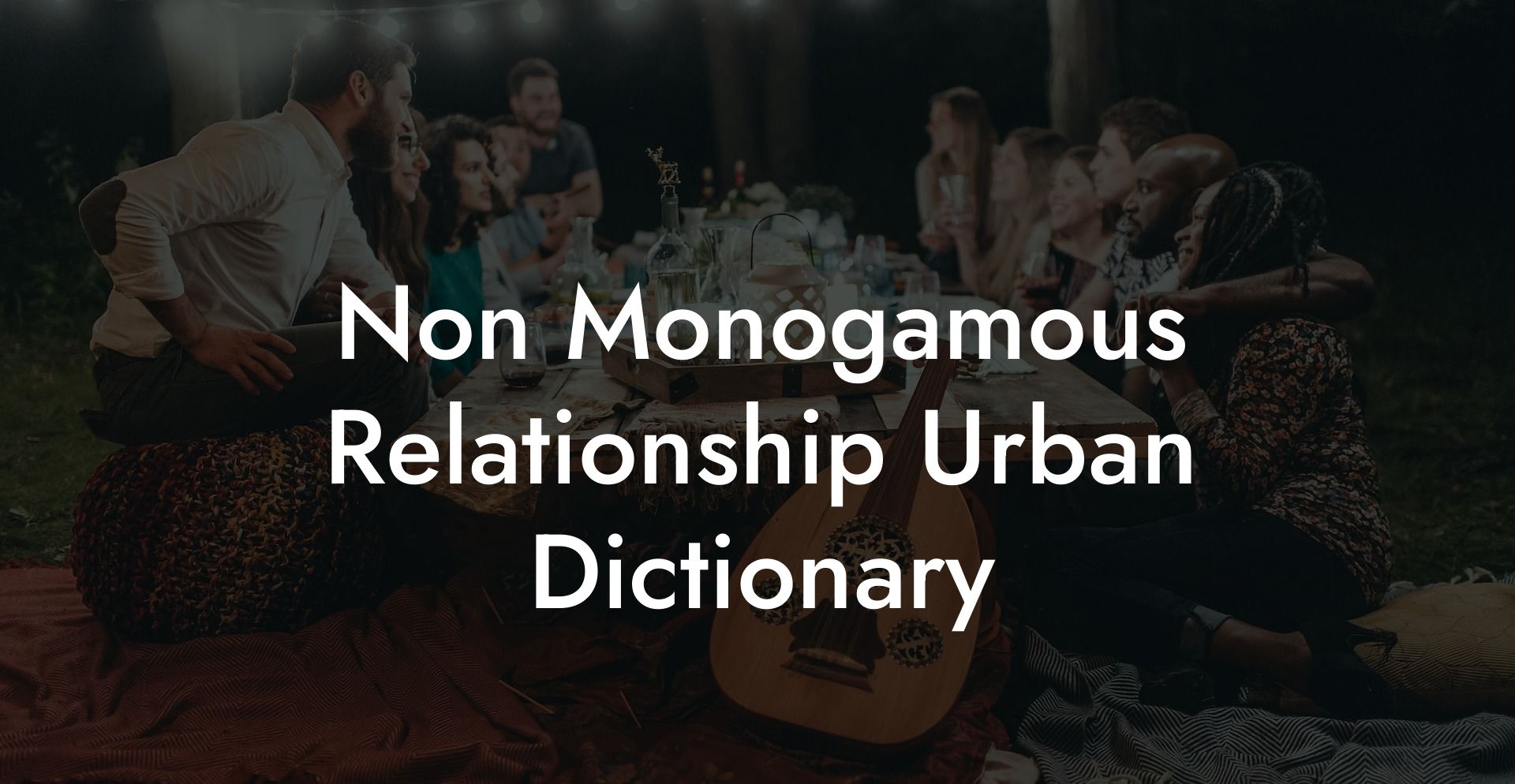In today's rapidly changing dating landscape, more and more people are seeking alternatives to the conventional monogamous, committed relationship. This has given rise to a variety of non-traditional relationship styles, confusing many in the process. Enter the Non Monogamous Relationship Urban Dictionary - a comprehensive guide to help you unravel the complexities of modern relationships and understand the terms and styles surrounding non-monogamy.
Non Monogamous Relationship Urban Dictionary Table of Contents
Understanding Non-Monogamy
Non-monogamy is an umbrella term encompassing all relationship styles that stray from the traditional monogamous standard. Some common forms of non-monogamy include:
Polyamory
Polyamory, often abbreviated as "poly," refers to the practice of engaging in multiple loving and committed relationships simultaneously. This relationship style is based on the belief that one person doesn't need to be limited to just one loving partner.
Open Relationships
In an open relationship, a couple is committed to each other but has agreed to seek additional sexual partners outside of their relationship. This can include casual encounters, one-night stands, or even regular sexual partners.
Swinging
Swinging, sometimes referred to as "the lifestyle," typically involves committed couples engaging in sexual activities with other couples or individuals. Swingers may engage in partner swapping or group sex in various social settings.
Relationship Anarchy
Relationship anarchists prioritize forming bonds and connections without following conventional relationship structures. They believe in autonomy and individuality, rejecting hierarchies and rules typically associated with romantic relationships.
Non-Monogamy Terminology
The Non Monogamous Relationship Urban Dictionary also includes terms and concepts you may encounter when exploring these relationship styles. Here are some terms you should be familiar with:
- Primary, Secondary, and Tertiary Partners: In polyamory, some people arrange their relationships in a hierarchical way. Primary partners are the ones with the highest level of emotional involvement, secondary partners hold a lesser degree of involvement, and tertiary partners are more casual.
- Metamour: This term refers to your partner's other partner(s). For example, in a polyamorous relationship, your partner's girlfriend or boyfriend would be your metamour.
- Compersion: Often described as the opposite of jealousy, compersion is the feeling of happiness for your partner's joy with their other relationships.
- Nesting Partner: This refers to a partner that one lives with or shares a common domestic space.
- Fluid Bonding: Choosing to share bodily fluids with a partner, often implying a level of trust and commitment between partners.
Non Monogamous Relationship Urban Dictionary Example:
Imagine Alice and Bob, a committed couple who have decided to explore an open relationship. They communicate their desires and boundaries and agree that they can each have casual sexual encounters outside of their relationship, without establishing emotional connections.
At a party, Alice meets another couple, Carol and Dave, who are swingers. They invite Alice and Bob to a party where they can engage in partner swapping should they feel comfortable. Meanwhile, Bob meets Eve, who identifies as a relationship anarchist. Eve forms connections with multiple people, including Bob, without any hierarchy or labels attached.
As new terms and experiences arise in this journey, Alice and Bob refer to the Non Monogamous Relationship Urban Dictionary to help them navigate their newfound lifestyle. They better understand the concepts they encounter and can communicate more effectively with others within the non-monogamous community.
Now that you've explored the Non Monogamous Relationship Urban Dictionary, you should have an easier time navigating and understanding the complex world of non-traditional relationships. Remember, communication is key when embarking on such explorations, and using this urban dictionary can prove extremely helpful. Feel free to share this guide with friends and others who may be curious or interested in delving into non-monogamous relationships. Don't forget to explore other guides on The Monogamy Experiment for even more insights into modern relationship styles.













